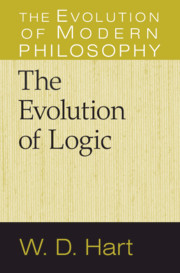Book contents
Five - Truth Eludes Proof
Published online by Cambridge University Press: 05 June 2012
Summary
It is not true that Socrates was snub-nosed unless the flesh-and-blood nose of the flesh-and-blood man was stubby and perhaps a bit turned up. As we saw in the last chapter, whether a sentence is true depends on what the sentence is about and how it is with that subject matter. So, to take a justly famous example from Euclid, it is not true that there are infinitely many prime numbers unless there are infinitely many prime numbers, and thus unless there are numbers. This conclusion already makes some philosophers nervous, and their nerves tend to become more jangled when we add the natural reflection that numbers are neither mental nor physical but abstract objects. That reflection invites exploration and argument, but it is a view of early resort. On the other hand, we are happiest attributing knowledge to a person when we can make out how she interacted or otherwise had commerce with the subject matter of her belief so as to justify her belief. The only mode of such commerce that all parties grant is perception; sensible rationalists have an empiricist streak. H. P. Grice convinced us that perception is by its nature causal. But it is pretty close to an axiom of metaphysics that very abstract objects like numbers are utterly inert. Hence, what makes mathematical truth possible makes mathematical knowledge impossible. This antinomy is known as Benacerraf’s dilemma.
An escape from the antinomy that occurs to many people, especially mathematicians, is to say that truth in mathematics is neither correspondence to fact nor in need of reference to abstract objects but is rather just provability. Mathematicians neither perform experiments on primes in retorts nor make expeditions to examine exotic ones; instead they establish their claims by proving theorems, and that is just a mode of writing and talking. In the Middle Ages the doctrine that there are no abstracta, no Platonic forms like humanity but only predicates like “is a person,” was called nominalism. Its twentieth-century incarnation that denies mathematics abstract subject matter and assimilates mathematical knowledge to empirical knowledge of expressions arrayed in proofs is called formalism. Formalism requires that all mathematical truths be provable (and proof should not smuggle in truth conceived semantically).
- Type
- Chapter
- Information
- The Evolution of Logic , pp. 123 - 151Publisher: Cambridge University PressPrint publication year: 2010

